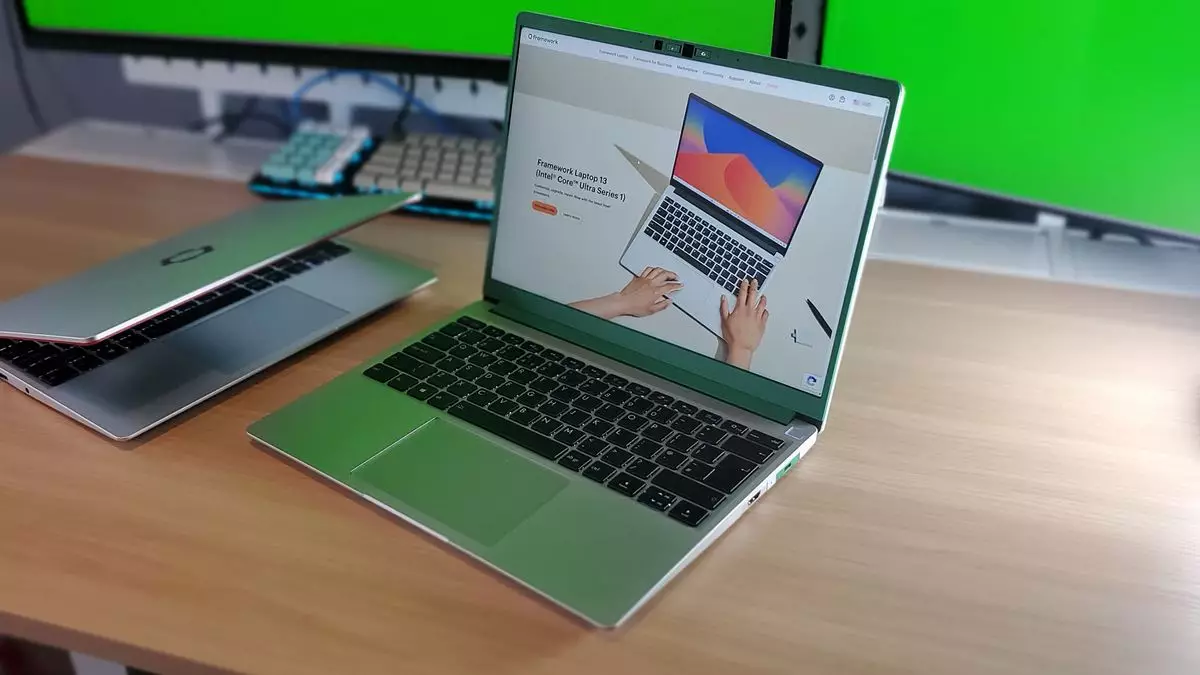The ongoing trade war and subsequent tariff increases initiated by previous administrations have left an indelible mark on the technology sector. Recent announcements from major hardware manufacturers such as Framework and Nintendo illustrate the complexities and challenges that accompany these financial decisions. Framework’s temporary halt on selling specific Laptop 13 systems exemplifies not just a momentary hiccup but a profound ripple effect throughout the industry—a consequence of the 10% tariffs imposed on imports from Taiwan, which is crucial for semiconductor manufacturing.
As these tariffs took effect, Framework disclosed via their social media platforms that they were forced to reassess their pricing structure. With the original pricing model built on a zero-tariff basis, the new circumstances mean selling lower-end laptops could entail substantial financial losses. The complexities of geopolitics directly influence product prices and availability, posing a significant hurdle for consumers and retailers alike.
The Role of Taiwan in Global Electronics Manufacturing
Taiwan has long been a powerhouse in the electronics production arena. The Semiconductor Manufacturing Company (TSMC), the world’s largest chip maker, is rooted in Taiwan, providing an essential foundation for electronics that underpin various technological products. However, despite the exemption of semiconductors from tariffs, electronic devices that incorporate these chips face steep charges due to the economic landscape’s shifting dynamics. The upsurge of tariffs on imports from Taiwan—now reaching a staggering 32%—places incredible pressure on manufacturers reliant on Taiwanese resources.
Unlike other countries embroiled in tariff disputes, Taiwan has opted against implementing retaliatory tariffs, possibly to maintain a dialogue with the United States. Nonetheless, this decision places local firms in a precarious position, exacerbating uncertainty and complicating logistical planning. Companies like Framework, while currently pausing sales on specific products, hold out hope that negotiations will lead to a more favorable landscape for their business operations.
Framework’s Transparent Response
In the shadow of tariff-induced upheaval, the transparency exhibited by Framework stands out as a refreshing contrast to the often opaque responses from other tech manufacturers. By openly communicating the challenges posed by tariffs, Framework is not only fostering consumer trust but also shaping a broader narrative that other companies would do well to emulate. Their candid acknowledgment of the situation reveals a commitment to ethical business practices, illustrating the pressing necessity for clear communication in turbulent times.
By revealing their financial calculations and the impact of new tariff regulations, Framework encourages a dialogue on the broader implications of such economic measures. In a landscape where many manufacturers are shrouded in silence regarding cost assessments and pricing strategies, Framework’s approach serves as a clarion call for open discourse among tech companies grappling with similar challenges.
Consumer Consequences and Market Dynamics
The domino effect stemming from tariffs extends beyond manufacturers directly impacted by regulatory changes, affecting consumers who are left to navigate a challenging marketplace. With delays and interruptions in product availability, potential buyers are being forced to adjust their purchasing decisions. Higher prices for laptops, especially in the entry-level segment, push consumers toward alternatives that may not meet their needs or expectations.
The price disparities are stark: once a consumer could purchase an entry model Framework Laptop for under $800, they now face the prospect of shelling out more than $1,100 for models bearing similar functionality. Meanwhile, prospective buyers looking at the Ryzen AI chip series find themselves paying additional premiums for accessibility. This inflationary trend directly challenges the tenants of consumer choice and affordability, core values that the tech industry has long championed.
The Future of Manufacturing Amid Tariff Uncertainties
As the tech landscape continues to adapt to the realities imposed by international tariffs, it is clear that we are at a crossroads. Companies are embarking on a complex journey of reassessment—of costs, pricing, and supply chains—while consumers face the brunt of these economic adjustments. Framework’s predicament may mirror the struggles of a host of other manufacturers, suggesting an imminent wave of public statements and shifts in strategy.
The question that looms overhead is not merely about how these manufacturers will weather the current storm but whether the ongoing changes in governance and trade policy will lead to sustainable, long-term solutions. Amidst the uncertainty, the importance of adaptability and transparency has never been clearer, solidifying Framework’s position as a trailblazer amid tumultuous times. This is not just about products and sales; it is a reflection of how interconnected our global economy has become—a cautionary tale wrapped in emerging technologies and shifting allegiances.

